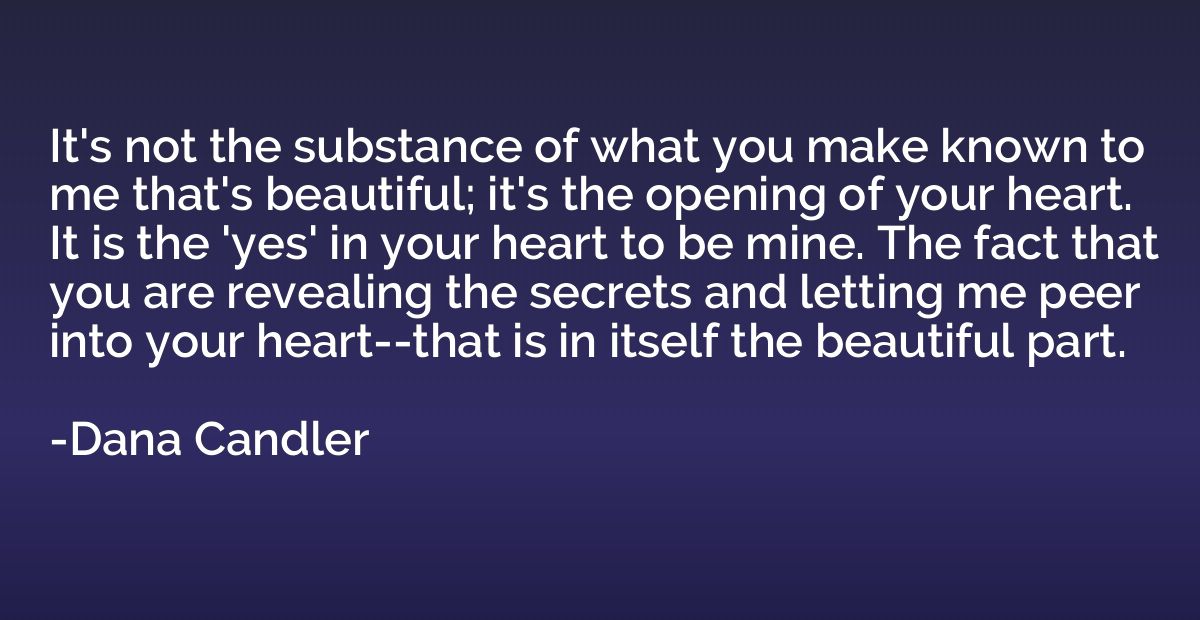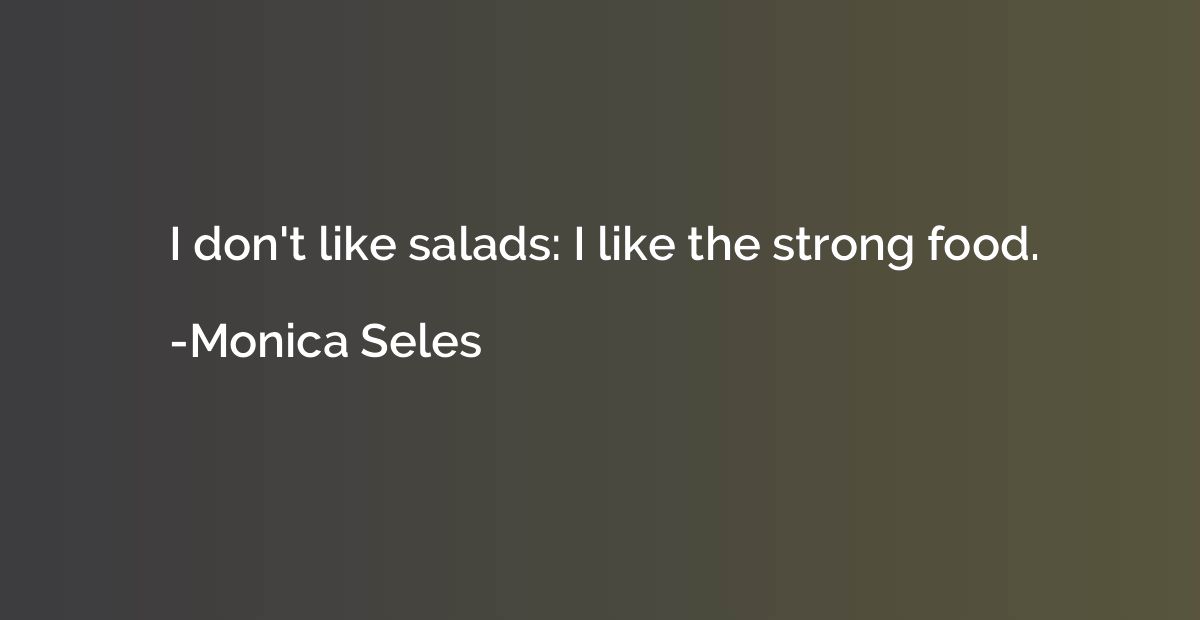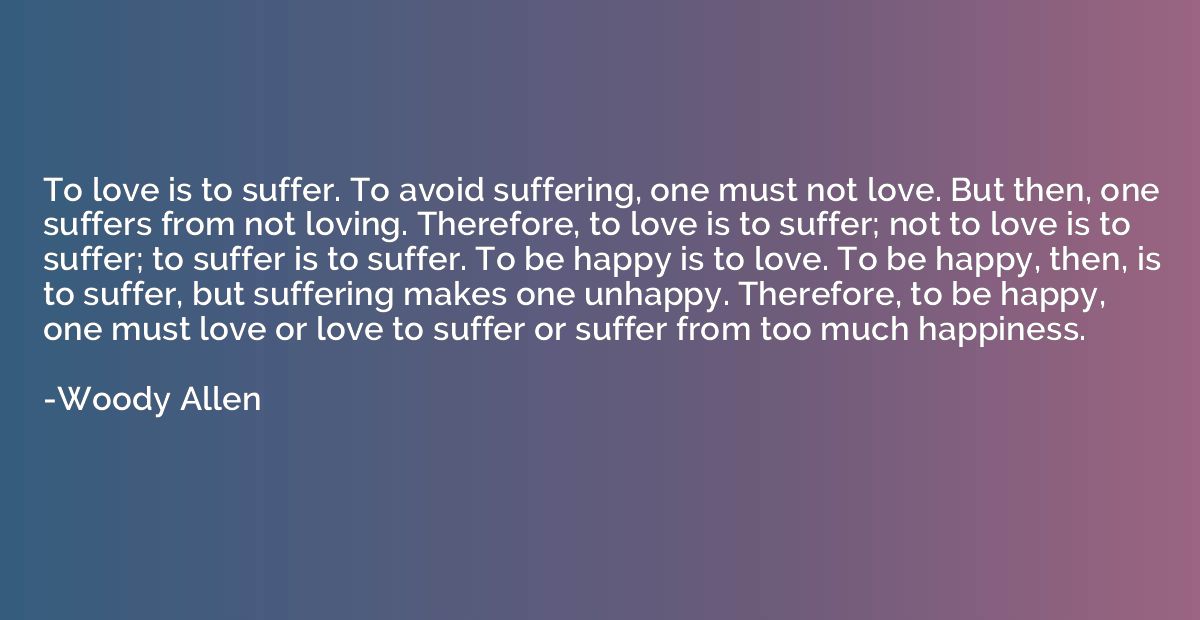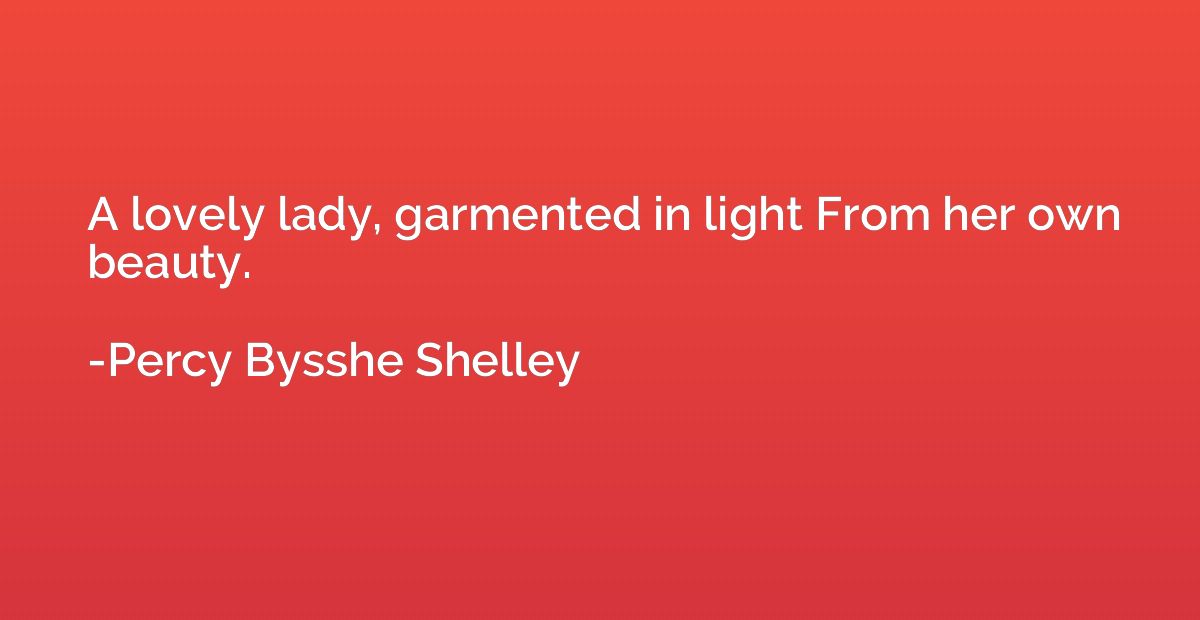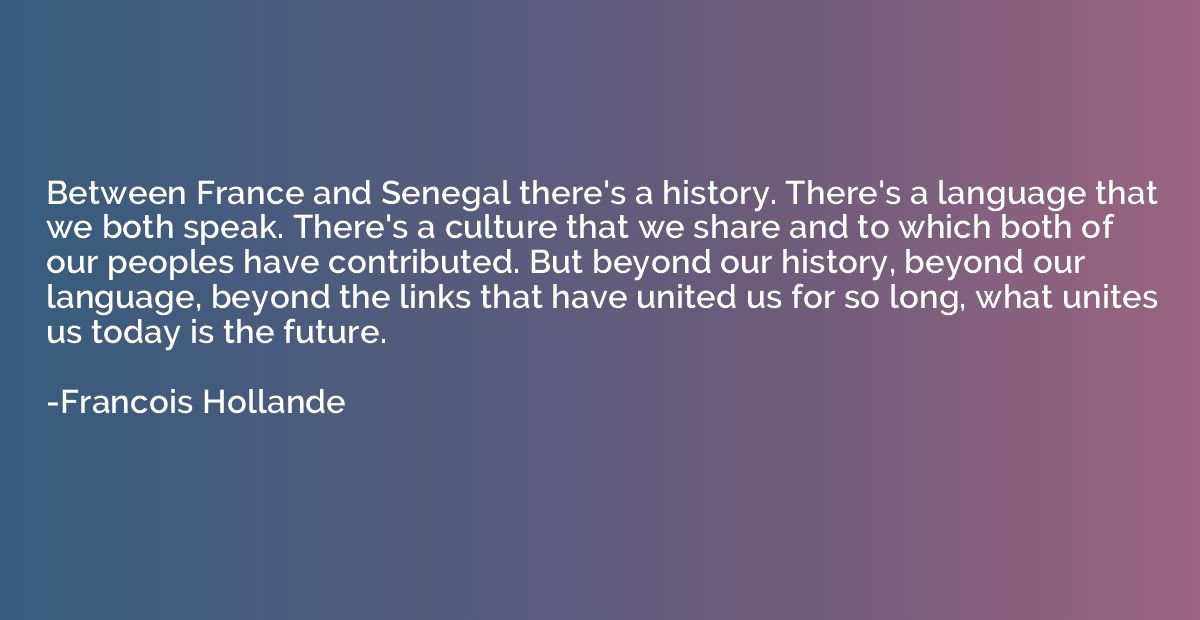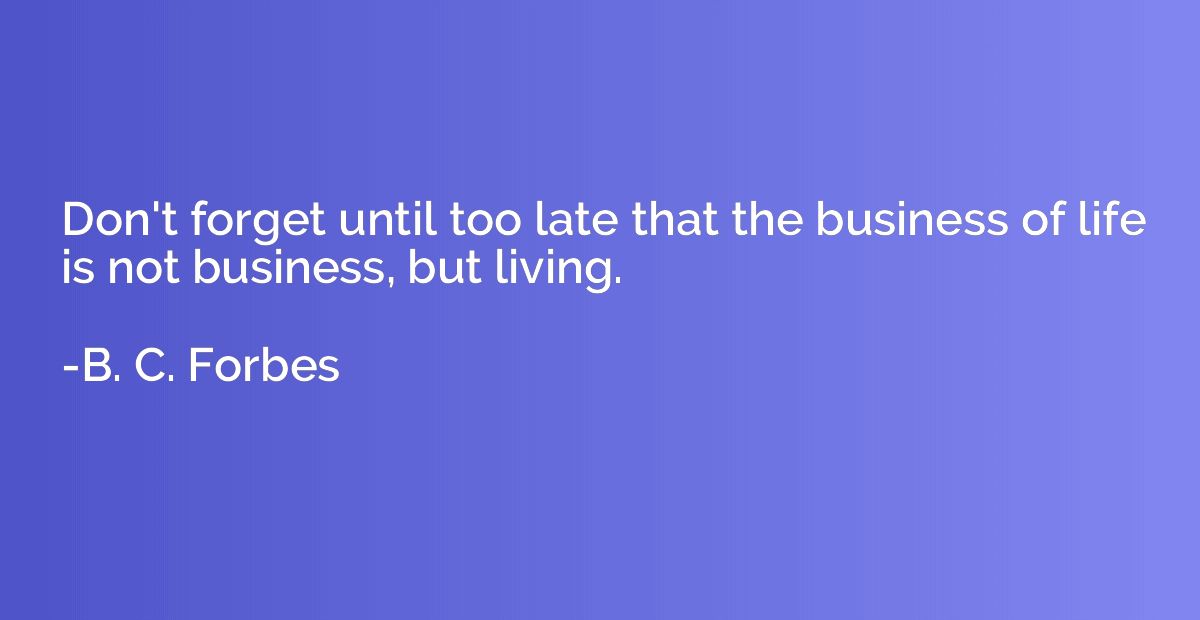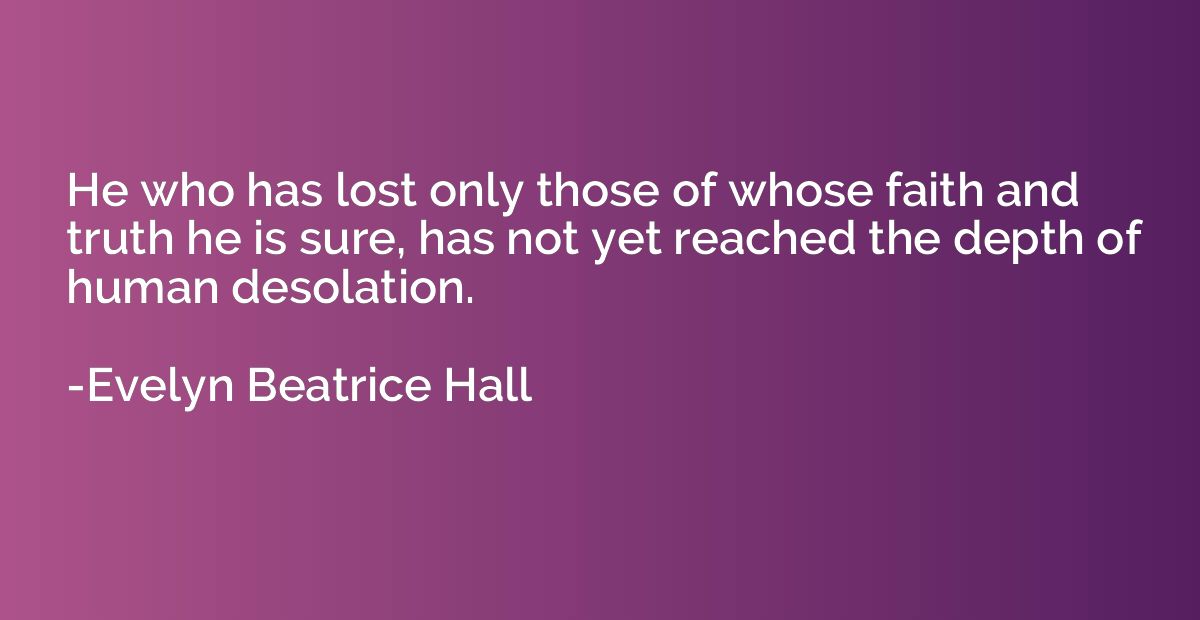Quote by Thomas Lynch
But poetry is a way of language, it is not its subject or its maker's background or interests or hobbies or fixations. It is nearer to utterance than history.
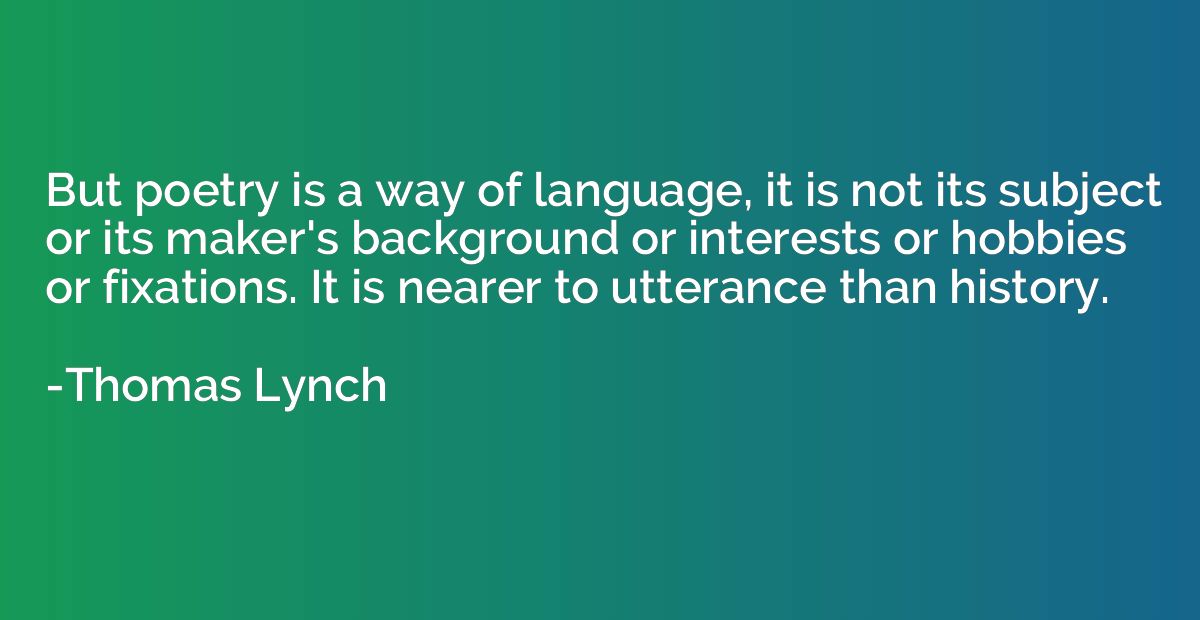
Summary
This quote emphasizes that poetry is not limited to the personal experiences or preferences of the poet, but rather a distinct form of communication. Unlike history, which focuses on specific events and their details, poetry transcends mundane details and delves into the realm of expressive language. It suggests that poetry has the power to convey deeper truths and emotions that go beyond mere factual accounts, enhancing its universality and making it more akin to the act of speaking itself.
Topics
Poetry
By Thomas Lynch



